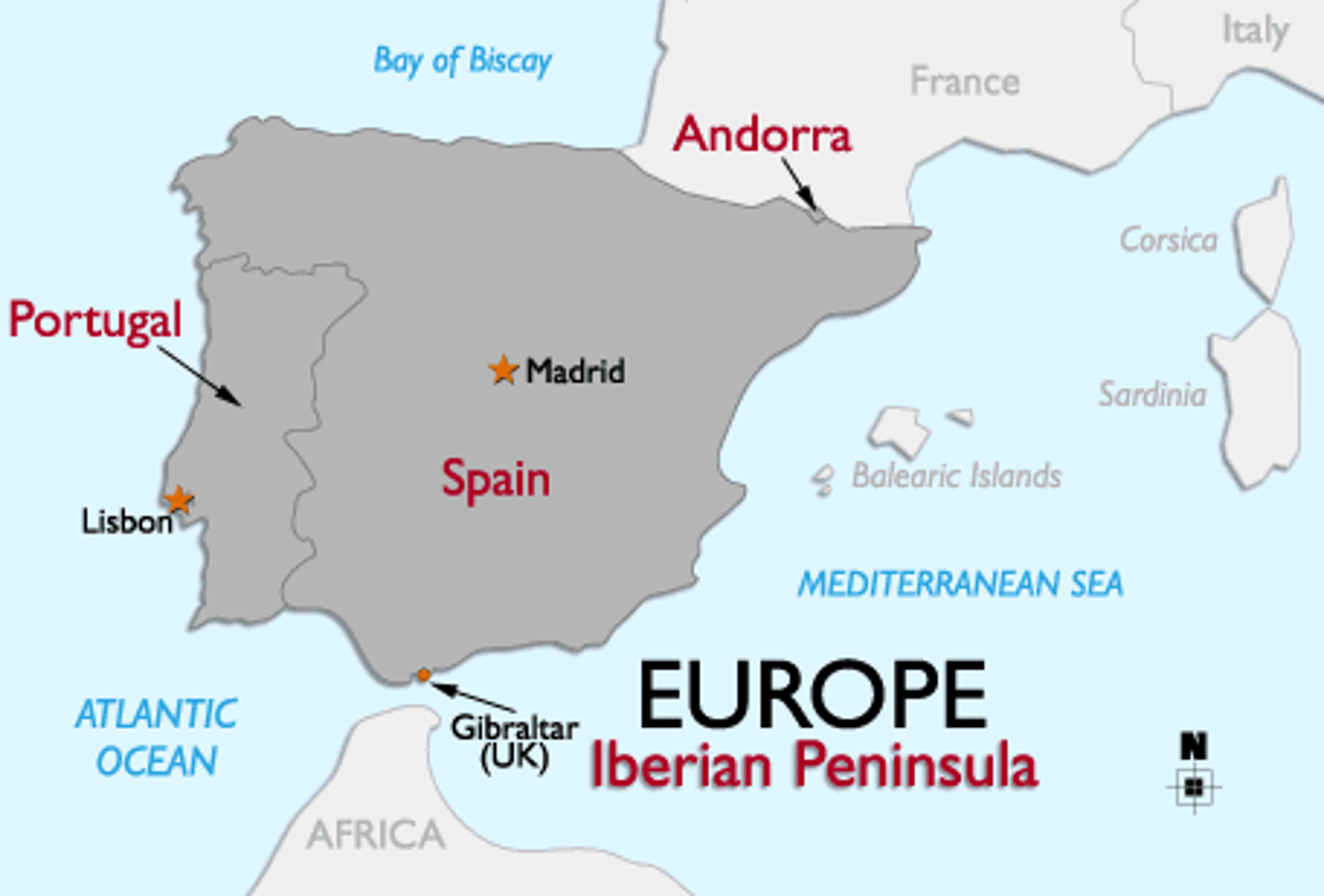Chapter 1 - Spain Pre and Post Columbus
1/23
Earn XP
Description and Tags
Name | Mastery | Learn | Test | Matching | Spaced | Call with Kai |
|---|
No study sessions yet.
24 Terms
What countries are located on the Iberian Peninsula?
Spain and Portugal

Which groups occupied the Iberian Peninsula before Roman occupation?
Celts, Basque, and Greeks
What was the time period of the Roman occupation of the Iberian Peninsula?
200 B.C. - 400 A.D
What significant achievement did the Romans accomplish in the Iberian Peninsula?
Unified most of the peninsula for the 1st time
What contributions did the Romans make to the Iberian Peninsula?
Settlements, infrastructure, future Spanish customs, law, language, & Christianity
What years did the Visigoth occupation of the Iberian Peninsula occur?
415-711 AD
What type of people were the Visigoths?
Germanic people
What religion did the Visigoths convert to?
Catholicism
Where can remnants of the Visigoths be seen in modern times?
Some formal Spanish names
What years did the Moor occupation of the Iberian Peninsula occur?
711-1492 (750 years)
Where did the Muslim conquerors who occupied the Iberian Peninsula come from?
Northwest Africa
What are some lasting influences of the Moor occupation on Spain?
Architecture, music, customs, and language
What was the Reconquista?
An ongoing effort to drive out the Moors.
What influence did the Reconquista have on medieval Spanish life and culture?
It influenced militarism, religious fanaticism, and elements of later cowboy culture.
When did the Reconquista end?
1492
Who were the monarchs during the end of the Reconquista?
Ferdinand of Aragon and Isabella of Castile
What significant political formation resulted from the marriage of Ferdinand and Isabella?
The nation-state of Spain
Where did Spanish religious and military zeal carry over to after the Reconquista?
First to the Canary Islands, then to the New World
Who were the first known inhabitants of the Canary Islands?
Guanches
When did the indigenous people come to the Canary Islands?
During the first millennium BC
Christopher Columbus
An Italian navigator funded by the Spanish Government (Ferdinand & Isabella) to find a passage to the Far East. He is credited for "discovering" the "New World," pillaging and killing native peoples. He made four voyages to the "New World." The first sighting of land was on October 12, 1492, and three other journies until he died in 1503.
What is the Columbian Exchange?
An exchange of goods, ideas, skills, plants, animals, diseases, and technologies between the Old World and the New World.
Which regions are considered the Old World in the context of the Columbian Exchange?
Europe, Asia, and Africa
Which regions are considered the New World in the context of the Columbian Exchange?
North and South America